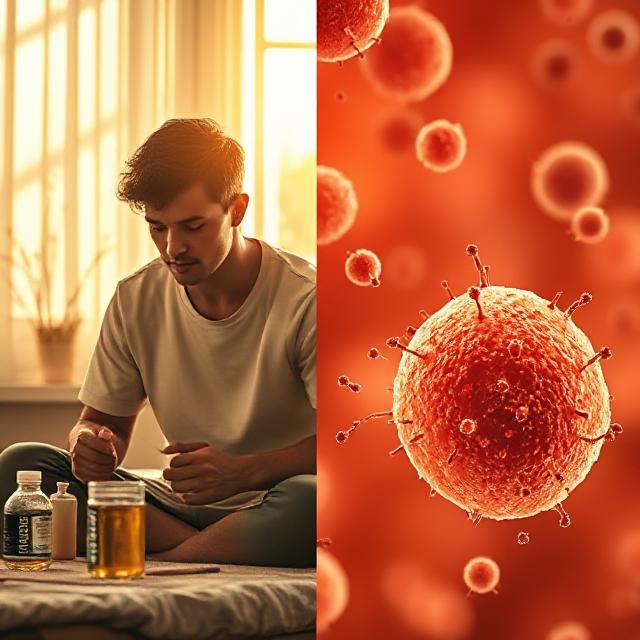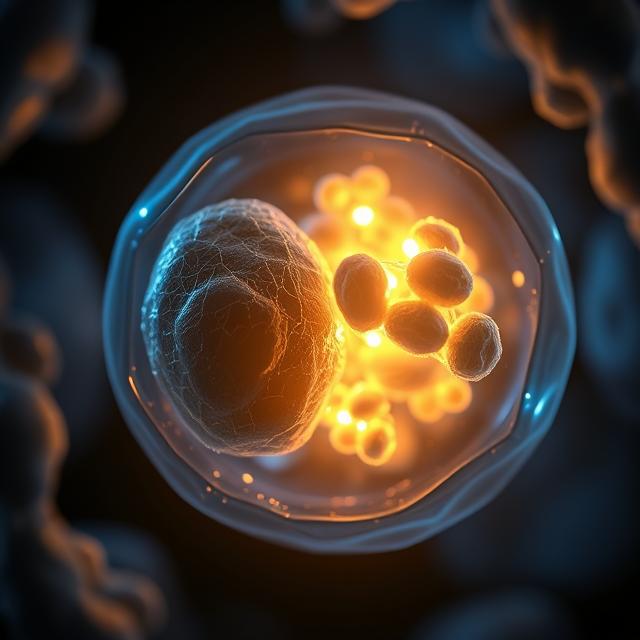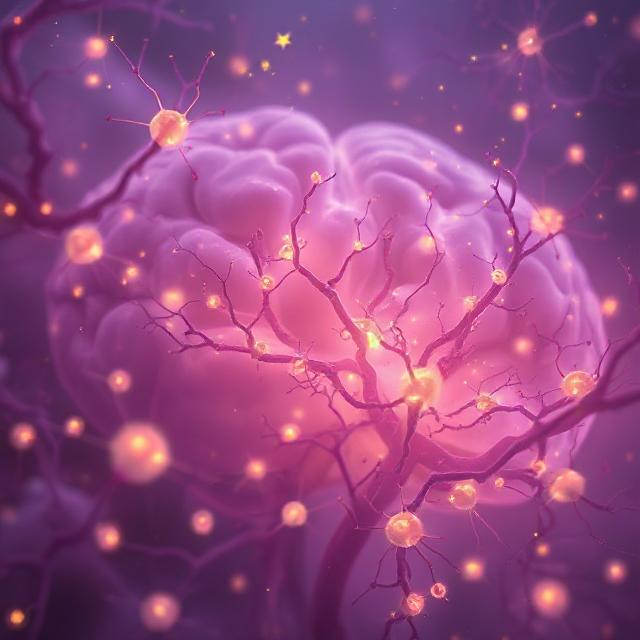Table of Contents
Autophagy & Regeneration
How Your Body Heals Itself from the Inside Out
Hidden beneath conscious awareness, your body is a tireless recycler. In every organ and every cell, waste accumulates—damaged proteins, malfunctioning mitochondria, senescent cells. And yet, through a primal, elegant process called autophagy, your body knows what to do: it cleans, it repairs, and it rebuilds.
Autophagy (from the Greek auto = self, phagy = eating) is your cellular self-cleaning system—a mechanism of biological housekeeping that breaks down and recycles dysfunctional cellular components. It is most powerfully activated not by eating, but by fasting.
This regenerative process holds the key to reversing chronic inflammation, extending lifespan, and unlocking peak mental clarity.
What Is Autophagy?
Autophagy is a conserved metabolic process where the body “digests” its own damaged components. When nutrients are scarce—such as during fasting—your cells break down old proteins, organelles, and pathogens, and reuse their parts for survival.
This isn’t destruction—it’s strategic recycling, and it happens in several stages:
- Detection of damaged organelles and proteins
- Encapsulation into autophagosomes
- Fusion with lysosomes (cellular digesters)
- Degradation and reuse of valuable building blocks
The result? A cell that’s leaner, cleaner, and more resilient—capable of healing itself from within.
🕑 When Autophagy Happens
Autophagy is nutrient-sensitive. It doesn’t occur in abundance when the body is in a constant fed state. It requires a break from eating—specifically, 12–16 hours of fasting triggers baseline autophagy, while 24–48 hours leads to deeper regeneration.
Other triggers include:
- Exercise (especially aerobic and resistance)
- Sleep, particularly deep stages
- Low insulin states
- Caloric restriction or ketogenic metabolism
The more metabolic stress (within reason), the more the body turns inward to rebuild.
Autophagy and Brain Health
Your brain thrives when autophagy is active. Why?
- Clears misfolded proteins linked to neurodegeneration (e.g., beta-amyloid, tau)
- Enhances mitochondrial function, improving energy efficiency
- Reduces neuroinflammation, a driver of depression and cognitive decline
- Supports neurogenesis—the formation of new neurons in the hippocampus
Mental clarity, emotional calm, and enhanced focus during fasting periods are not mystical—they’re physiological consequences of a brain unburdened by metabolic waste.
Autophagy and Aging
Aging isn’t just about time—it’s about accumulation of damage. And autophagy is nature’s way of reversing that damage:
| Effect | Mechanism |
|---|---|
| Anti-aging | Removes senescent cells that disrupt tissue function |
| Tissue repair | Recovers usable materials from degraded organelles |
| Immune reset | Degrades intracellular pathogens and reboots defense |
| Longevity | Linked to extended lifespan in calorie-restricted organisms |
This is why calorie restriction, intermittent fasting, and fasting-mimicking diets are at the forefront of longevity science.
How to Activate Autophagy
Here’s a framework to stimulate autophagy safely and effectively:
1. Fasting Windows
- Begin with 16:8 intermittent fasting
- Experiment with 24–48 hour fasts monthly
- Consider 72-hour fasts quarterly (with supervision)
2. Low-Carb or Ketogenic Eating
- Low insulin = high autophagy
- Ketones mimic fasting effects
3. Exercise in a Fasted State
- Promotes mitochondrial recycling (mitophagy)
- Stimulates growth hormone and fat-burning
4. Autophagy-Supporting Nutrients
- Green tea, berberine, curcumin, and resveratrol support AMPK activation
- Electrolytes help during extended fasting
Balance: When to Stop Autophagy
Too much autophagy—like too much stress—can be harmful. The goal is balance, not depletion.
That’s why post-fast refeeding is vital. After a period of autophagy, the body enters a rebuilding phase:
- Protein synthesis increases
- Stem cells activate
- Growth pathways (mTOR) turn on
Think of autophagy as the demolition phase—clearing out the rubble. But rebuilding requires nourishment: amino acids, essential fats, micronutrients, and rest.
Cycle, Don’t Overdo
Autophagy should be cyclical. You break down. Then you rebuild. You clean house. Then you redecorate.
This ebb and flow of fasting and feeding, stress and rest, mirrors the ancient biological rhythms encoded in our DNA.
The modern disease epidemic? It stems from breaking those rhythms.
Summary: The Power of Autophagy
Autophagy is not optional—it is vital. It is the mechanism through which your body keeps itself young, clean, and efficient.
Through strategic fasting and recovery, you can:
- Reduce cellular waste
- Boost longevity
- Improve cognitive clarity
- Support immune resilience
- Reset your entire metabolic state
This is regeneration through rhythm—and it’s already built into you.




